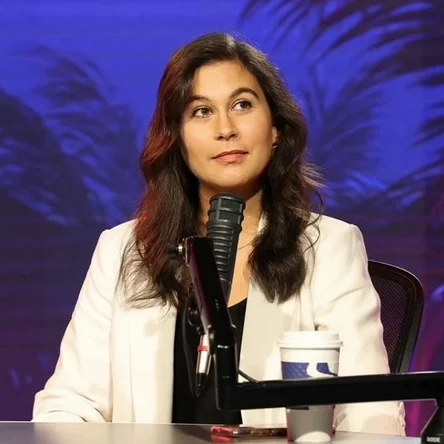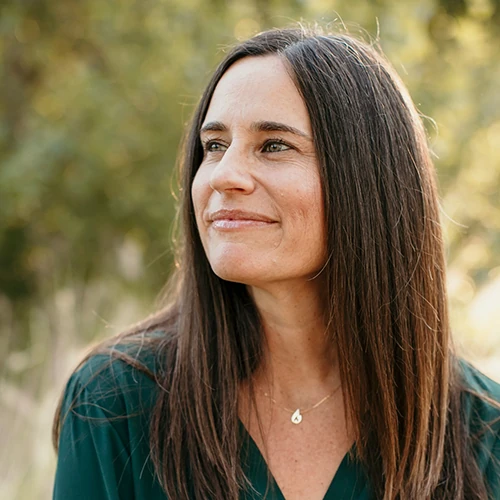Qatar’s Influence Unveiled: Foreign Funding Reaching Into American Education

In the last few years, there has been a concerning trend that has emerged, demonstrating how Qatar, a small but affluent Gulf state, has been pouring billions of dollars into American institutions, and more specifically higher education, with spillovers that echo well beyond the campus.
This economic influence, often hidden behind the guise of philanthropy, is a deliberate attempt on Qatar’s behalf to exercise soft power, shape perceptions, and advance ideologies that are in its own interests: interests that are inversely aligned with American values of openness, academic freedom, and democratic ideals.
The extent of Qatar’s investments is widespread, well beyond universities to cultural influencers; extending well into global charities like the Clinton Foundation.
The extent of Qatar, its impact on American sovereignty, and the instance of its support of individuals like director Mira Nair, mother of New York City mayoral candidate Zohran Mamdani, is what we’re delving into today.
Qatar’s Billions in American Universities: A Cause for Concern
Since 2001, Qatar has spent over $6 billion on American universities, making it the largest foreign benefactor of US higher education, according to reports by the Institute for the Study of Global Antisemitism and Policy (ISGAP) and other watchdog groups.
This staggering sum, much of which was channeled through the Qatar Foundation, a non-profit organization led by Sheikha Moza bint Nasser, mother of Qatar’s Emir Tamim bin Hamad Al Thani, is raising red flags about the danger of foreign intrusion in academic curricula and campus politics.
Universities like Cornell, Texas A&M, Georgetown, and Northwestern have all been large beneficiaries, with Cornell receiving a total of reported $1.95 billion between 2001 and 2023 alone. These institutions, many of which have satellite campuses in Qatar’s “Education City,” have been criticized for failing to report these donations to the U.S. Department of Education, as the outlets of law require.
ISGAP’s “Follow the Money” program, launched in 2012, uncovered billions of unreported cash, which initiated a federal investigation in 2019. It is claimed that this lack of transparency is what allows Qatar to quietly dominate academic environments, spreading anti-democratic values and, in some cases, antisemitic ideology.
ISGAP’s findings show that universities who are the recipients of funding from Qatar experience 300% higher rates of antisemitic incidents than those universities that do not receive such funding. Qatar Foundation International (QFI), the international arm of the Qatar Foundation, has also entered the K-12 segment.
For instance, QFI funded the Choices Program at Brown University, providing roughly 8,000 schools nationwide with curricular materials. These materials have been criticized for promoting narratives that delegitimize Israel and provide a one-sided history of the Middle East. A particularly nefarious instance involved a New York City public school displaying a map replacing Israel with “Palestine,” as part of an Arab Culture Arts program sponsored by QFI.
Instances like these raise questions about Qatar’s ability to shape young minds through education content set to its geopolitical agenda.
Beyond Academia: Qatar’s Connections to the Clinton Foundation
Qatar’s economic reach doesn’t stop at universities but goes on to include high-profile global charities, most notably the Clinton Foundation.
During 2011, while Hillary Clinton served as U.S. Secretary of State, the Clinton Foundation accepted a $1 million donation from Qatar without warning the State Department, a breach of an ethics memorandum that guaranteed such warnings.
This gift, pledged to mark Bill Clinton’s 65th birthday, was part of a broader pattern of foreign donations to the foundation, including Saudi Arabian, Kuwaiti, and United Arab Emirates donations totaling tens of millions of dollars.
WikiLeaks founder Julian Assange in 2016 also accused Saudi Arabia and Qatar, both donors to the Clinton Foundation, of funding ISIS, showing the notorious connections among these regimes and global terror.
While the Clinton Foundation has defended these donations as assistance to its humanitarian work, these are portrayed by critics as a pay-to-play arrangement that grants disproportionate power to foreign governments in shaping American policymakers. The foundation’s repeated inability to report these donations to the State Department also stokes suspicion of impropriety.
Qatar’s Cultural Investments: The Case of Mira Nair and Zohran Mamdani
Qatar’s influence also extends to the cultural sphere, and in the guise of its investment in director Mira Nair, the mother of Democrat New York City mayoral hopeful, Zohran Mamdani.
Since 2009, Nair has been supported heavily by Sheikha Al-Mayassa bint Hamad Al-Thani, the emir of Qatar’s sister, by state-funded cultural agencies like the Doha Film Institute. The institute supported Nair’s 2012 film The Reluctant Fundamentalist, a $15 million effort whose tale of a Pakistani immigrant’s struggle to fit in post-9/11 America. The film is a tale which ultimately serves Qatar’s agenda for altering Western attitudes.
But that’s not all, Nair’s ties to Qatar go deeper.
Her film Amelia in 2009 launched the inaugural Doha Tribeca Film Festival hosted by the Doha Film Institute. This is the same institute which funded a “boot camp” between 2010 and 2014 to teach Qatari students at Nair’s Maisha Film Labs in East Africa and Doha.
In 2022, Qatar Airways and Sheikha Al-Thani’s Qatar Creates produced a stage adaptation of Nair’s Monsoon Wedding as part of the World Cup festivities, an event marred by reports of human rights abuses against migrant workers. Additionally, a company Nair established in India conducted $102,000 in business with Agence Publics Qatar, linked to Qatar’s oil and gas sector, in 2022 and 2023.
These financial ties have drawn scrutiny due to Nair’s outspoken anti-Israel views and her son Zohran Mamdani’s numerous controversial political stances.
Mamdani, a self-described democratic socialist and New York State Assembly member, has campaigned on far-left policies and ideology, including defunding the police and labeling Israel’s actions in Gaza as “genocide.” Mamdani’s campaign has denied any direct financial ties to Qatar; the optics of his mother’s extensive funding from a regime that hosts Hamas leaders and has been criticized for supporting terrorism are deeply troubling, however.
Qatar’s Broader Influence Network
Qatar’s financial influence goes beyond education and cultural figures.
The government has invested millions in public relations efforts and lobbying in the United States to shine its image as an enlightened ally while sheltering senior Hamas officials and maintaining ties with the Muslim Brotherhood.
Qatar Foundation’s sponsorship of Texas A&M University in the amount of over $1 billion in research projects, some of which have potential military uses, has been the subject of national security issues, leading Texas A&M to close its Qatar campus.
Similarly, Qatar’s sponsoring the Galilee Foundation, a London-based nongovernmental organization with links to ex-Israeli Knesset member Azmi Bishara, has extended its influence into Arab-sector education within Israel, adding to its complicated geopolitical game.
Upholding American Sovereignty
Qatar’s financial intrusions into American institutions is a flagrant attack on the sovereignty and values of the United States. The infusion of foreign capital into universities, often unannounced, undermines academic quality and risks turning campuses into hotbeds of anti-American and antisemitic ideology. The fact that such transactions are not transparent and Qatar has links with terror outfits like Hamas, reflects a deliberate effort to use Western institutions for geopolitics.
The Clinton Foundation’s acceptance of Qatari funds during Hillary Clinton’s tenure as Secretary of State is deeply troubling in regard to conflicts of interest and the potential for foreign governments buying access to the highest levels of American influence.
For some time, those on the right-of-center have urged greater control of foreign donations to American institutions in terms of mandatory disclosures and bans on donations from oppressive regimes with questionable human rights records.
Until such a day when greater security measures are put in place, it is on the federal government to research financial transactions and ensure that there is no foreign interference in American institutions.
Conclusion
Qatar’s money in America is a real multi-faceted problem that demands instantaneous attention.
From spending billions on universities and global charities, to hosting cultural celebrities, Qatar’s soft power strategy is clear: to shift narratives and policies in its favor.
Transparency and accountability are the solutions so that America’s institutions remain free of foreign interference. It is the fate of American education, and that of her sovereignty, which rests on it.
Thank you for your support.
If you appreciate the work we do to spread the good news of Jesus Christ, please consider giving a gift to help us continue this work. Maranatha!
Click an icon below to share this post.
All articles, including blogs and guest articles, published on Encounter News are owned by Encounter Today and Encounter News. The use of any content created and published by Encounter News may be quoted but attribution is required.
Portions of Encounter News articles may be used for reprint and republish purposes, but Encounter News MUST BE CREDITED.
All reprinted or republished articles must:
(1) Identify the author of the article.
(2) Contain the Encounter News byline at the beginning of the article and a hyperlink “Encounter News” to the respective article on the Encounter News website.
(3) Contain, at maximum, three paragraphs and then link back to the original article.



































